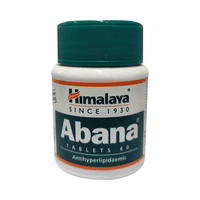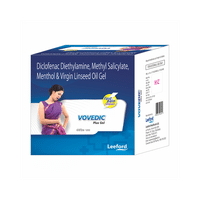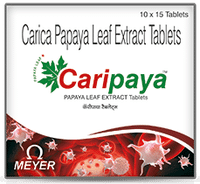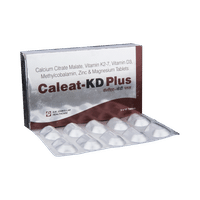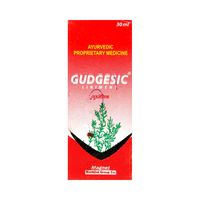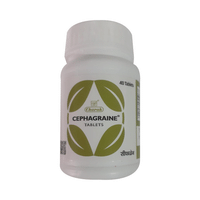Rs.131for 1 strip(s) (10 tablets each)
food interaction for Nexovas T
alcohol interaction for Nexovas T
pregnancy interaction for Nexovas T
lactation interaction for Nexovas T
food
alcohol
pregnancy
lactation
Nexovas T Tablet may be taken with or without food, but it is better to take it at a fixed time.
None
None
CAUTION
It is unsafe to consume alcohol with Nexovas T Tablet.
UNSAFE
Nexovas T Tablet is unsafe to use during pregnancy as there is definite evidence of risk to the developing baby. However, the doctor may rarely prescribe it in some life-threatening situations if the benefits are more than the potential risks. Please consult your doctor.
CONSULT YOUR DOCTOR
Information regarding the use of Nexovas T Tablet during breastfeeding is not available. Please consult your doctor.
CONSULT YOUR DOCTOR
SALT INFORMATION FOR Nexovas T
Cilnidipine(10mg)
Uses
Cilnidipine is used in the treatment of Hypertension (high blood pressure), Angina (heart-related chest pain), heart attack and stroke.
How it works
Cilnidipine is a calcium channel blocker. It lowers blood pressure by relaxing blood vessels, which makes the heart more efficient at pumping blood throughout the body.
Common side effects
Flushing (sense of warmth in the face, ears, neck and trunk), Headache, Dizziness, Palpitations, Abdominal pain, Peripheral edema, Gingival hyperplasia, Insomnia (difficulty in sleeping), Gastrointestinal disturbance
Telmisartan(40mg)
Uses
Telmisartan is used in the treatment of Hypertension (high blood pressure), Heart failure, fever and prevention of heart attack and stroke.
How it works
Telmisartan is an angiotensin receptor blocker (ARB). It relaxes blood vessels by blocking the action of a chemical that usually makes blood vessels tighter. This lowers the blood pressure, allowing the blood to flow more smoothly to different organs and the heart to pump more efficiently..
Common side effects
Tachycardia, Increased sweating, Flushing (sense of warmth in the face, ears, neck and trunk), Fever, Piles, Bronchitis (inflammation of the airways), Joint inflammation, Dryness in mouth, Cystitis, Nausea, Diarrhea, Asthma, Angioedema (swelling of deeper layers of skin), Increased white blood cell count (eosinophils), Low blood platelets, Impotence, Migraine, Upper respiratory tract infection, Back pain, Cough, Hypersensitivity, Sinus inflammation, Skin ulcer, Vertigo, Intermittent claudication, Ringing in ear, Decreased hemoglobin, Increased creatinine level in blood
SUBSTITUTES FOR Nexovas T
296 Substitutes
296 Substitutes
Sorted By
 Rs. 245.29pay 25% more per Tablet
Rs. 245.29pay 25% more per Tablet Rs. 279pay 37% more per Tablet
Rs. 279pay 37% more per Tablet Rs. 136save 2% more per Tablet
Rs. 136save 2% more per Tablet Rs. 90.30save 36% more per Tablet
Rs. 90.30save 36% more per Tablet Rs. 240.74pay 26% more per Tablet
Rs. 240.74pay 26% more per Tablet
Expert advice FOR Nexovas T
- Take it at the same time every day to help you remember to take it.
- A sudden drop in your blood pressure may occur, especially when you first start taking Cilnidipine. To lower the chance of feeling dizzy or passing out, rise slowly if you have been sitting or lying down.
- It can cause ankle or foot swelling. To reduce the swelling, raise your legs while you are sitting down. Talk to your doctor if it does not go away.
- It may cause dizziness. Do not drive or perform any activity that requires mental focus until you know how Cilnidipine affects you.
- Inform your doctor if you are pregnant, planning a pregnancy or breastfeeding.
Frequently asked questions FOR Nexovas T
Cilnidipine
Q. What is the use of Cilnidipine?
Cilnidipine is a medicine used to treat high blood pressure. It belongs to a group of medicines which block the calcium channels in the blood vessel. It works by relaxing the blood vessels in patients with high blood pressure. This widens the diameter of the blood vessels which helps the blood to pass through them more easily.
Q. Which is better amlodipine or Cilnidipine?
Both these medicines are used in the treatment of blood pressure and are equally good in effectively reducing the blood pressure. Cilnidipine has also been found to be beneficial in patients with kidney problems as compared to amlodipine. Additionally, while amlodipine may have chances of causing mild ankle swelling, Cilnidipine has been found to have lesser chances of causing ankle swelling, tachycardia and palpitations. Your doctor will suggest either of these after seeing what suits you.
Q. What are the side effects of Cilnidipine?
Cilnidipine is generally well tolerated but sometimes can also be associated with side effects like headache, dizziness, flushing, palpitations, low blood pressure, and stomach problems. It may also cause increased urination, ankle swelling, and lethargy. These side effects are not common in everyone but may occur in some individuals. Do consult your doctor if you notice any side effects after taking this medicine.
Telmisartan
Q. Should Telmisartan be taken in the morning or at night?
Telmisartan is generally recommended to be taken once daily, either in the morning or in the evening. Consider taking it at the same time each day as it will help you to remember taking it.
Q. How long does it take for Telmisartan to work?
You may see an improvement within a few days. But, the maximum benefit can be seen within 4-8 weeks of starting treatment.
Q. My blood pressure is now controlled. Can I stop taking Telmisartan now?
No, do not stop taking Telmisartan without consulting your doctor even if your blood pressure is controlled. Stopping it suddenly may increase your blood pressure which could be detrimental for you. Telmisartan does not cure high blood pressure but controls it. So, you may have to take the medicine lifelong. Talk to your doctor if you have any concerns.















